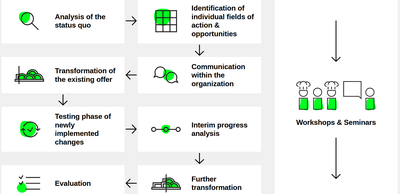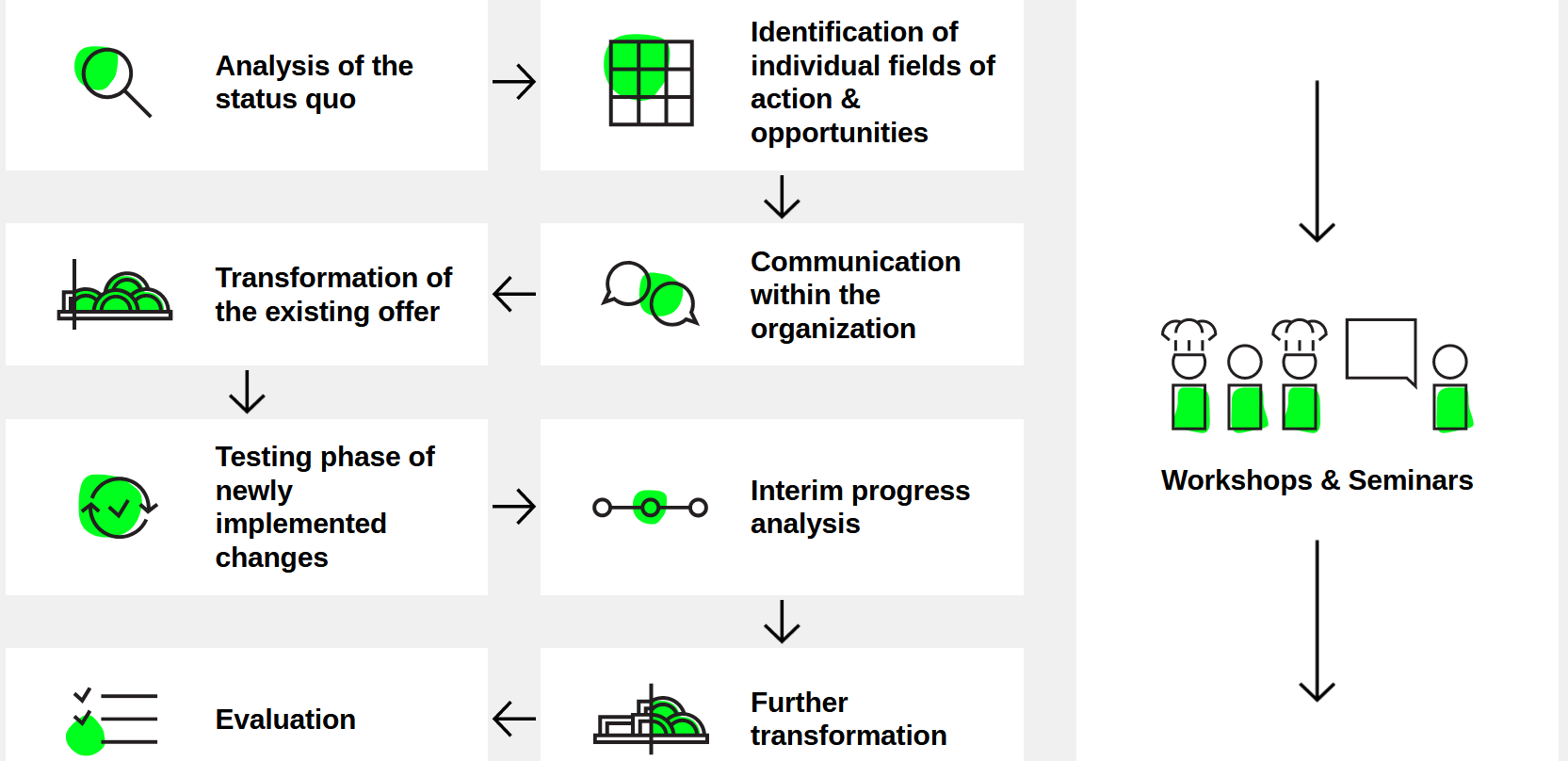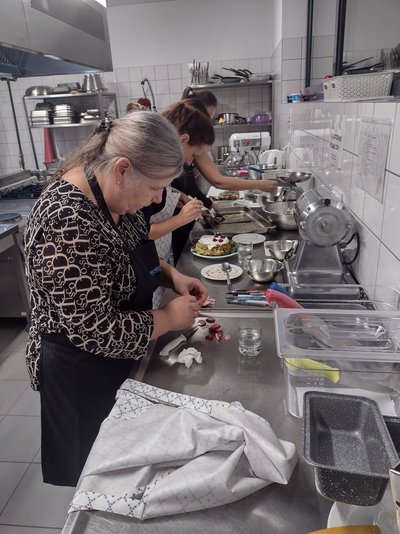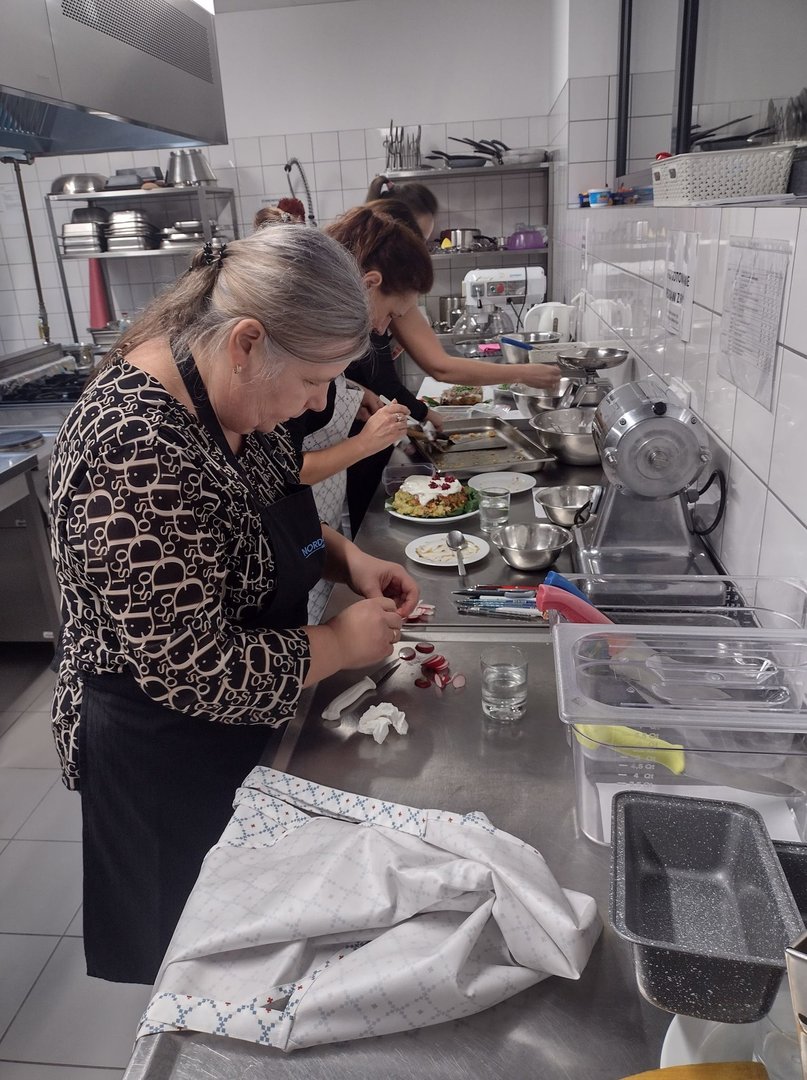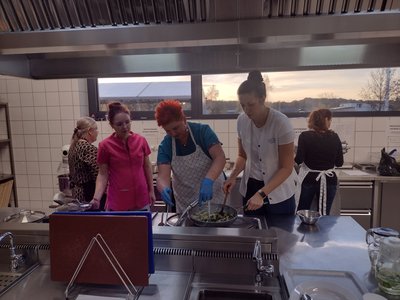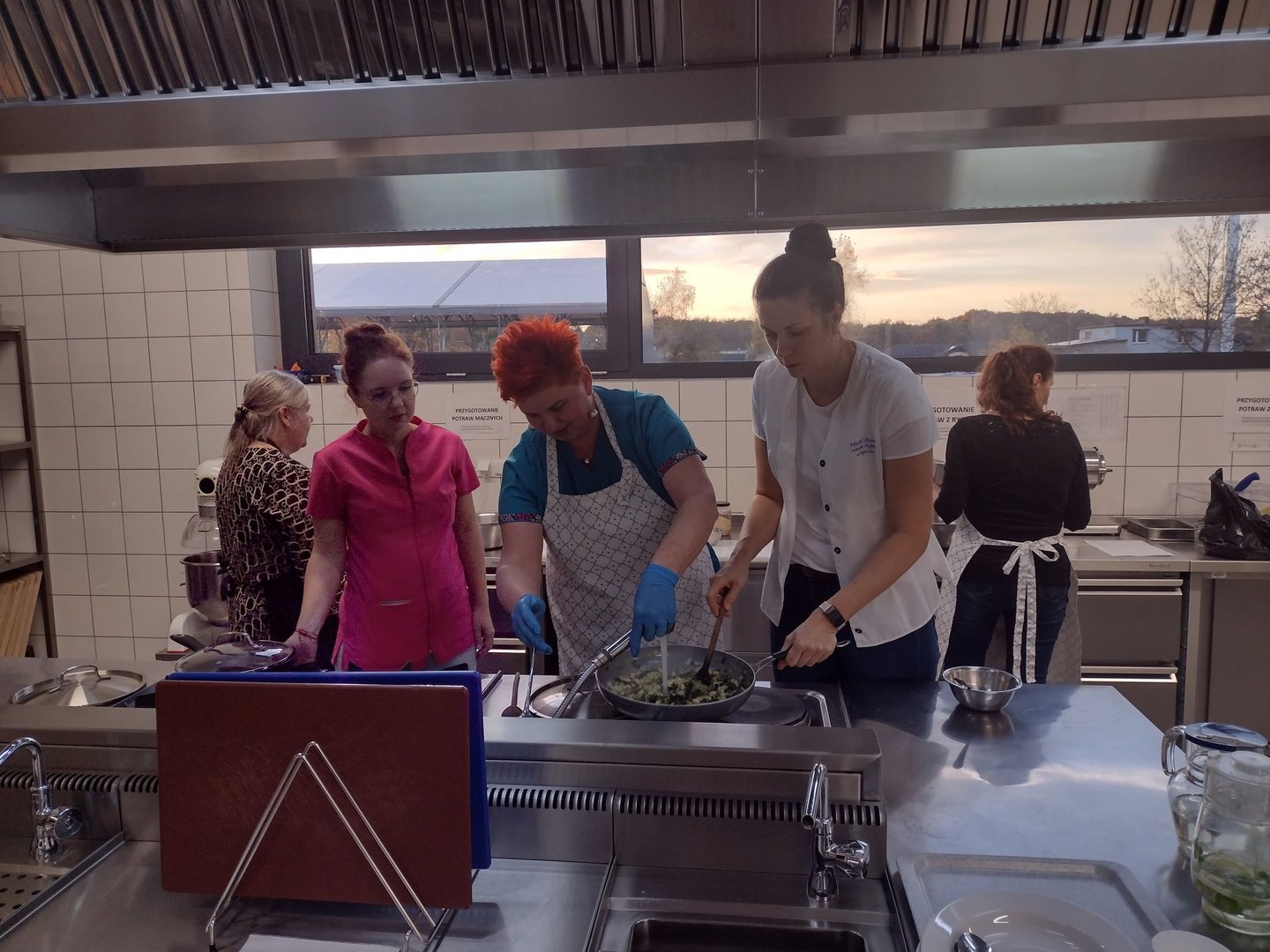Necessary Steps
Establish a program
- Analyse the needs for and possibilities of establishing such a programme in your municipality.
- Create a call for tenders and procure a suitable provider to carry out the programme, if an in-house solution is not possible.
- Consult all the relevant local stakeholders, bring interested kitchen professionals together, and find out their ideas, availability, and demands.
- Design the training and all other aspects of the programme, such as networking, communication strategy, etc.
Promote the programme among public kitchen professionals.
- For each participating kitchen, implement a workshop programme:
- Carry out an analysis of the “status quo” of the kitchen so that areas of sustainability can be more easily discerned.
- Identify the kitchen’s action fields (*) where transformative activities can have an impact on sustainability. Those activities can cover the meals offered, which foods are purchased, and methods of food preparation, as well as the processes of the kitchen team.
- Discuss and communicate the findings with the management and the kitchen professionals.
- Transform the existing offer, e.g. by including more seasonal dishes, or adding more vegetables and test the changes in the real kitchen environment.
- After a predefined time, evaluate the progress of the transformation.
- Adjust the measures, if necessary, and implement further changes.
- Evaluate the programme outcome in the final workshop.
- Provide further training and seminars.
- Provide networking opportunities for joint operations, like a regular municipality-wide roundtable on a specific topic.
- Establish a reward or certification scheme to motivate the kitchens and their employees to participate in the programme.
- Establish a communication strategy to help inform canteens and other professional stakeholders.
(*)Suggested action fields:
Offer
- Design an appealing food offer under the given framework conditions.
- Focus on raw vegetable materials.
- Include attractive seasonal dishes, and nutritionally sound snacks between meals.
Purchasing/ raw materials
- Avoid ready-made and semi-finished products.
- Increase the actual organic share.
- Increase the proportion of regional and seasonal organic foods.
- Apply Innovative procurement policies.
Cooking
- Encourage intuitive cooking and trained sensorial skills.
- Implement new and creative kitchen practices.
- Use every aspect of the produce available: nose-to-tail and leaf-to-root.
- Minimise food waste.
Team
- Support learning & empowerment.
- Promote acceptance.
- Encourage team building.
- Promote motivation.
More Issues To Consider
- The programme can also help commercial services to become more sustainable through its customised approach.
- Note that sourcing a suitable space (one which is large enough, with the requisite kitchen facilities, etc.) may be difficult.
- One of the main recommendations is the implementation of sustainable procurement criteria in the tenders for public catering services and food procurement. This would provide a better framework for the training programme.
- Having an attractive and professional design /corporate identity is important to be taken seriously by the kitchen professionals and to encourage participation.
- This approach is based on the model of the "House of Food" in Copenhagen, adapted to Berlin’s conditional framework. As in Copenhagen, the idea is also to change meals and procedures without incurring additional costs, enabling institutions to continue offering meals at a low price
